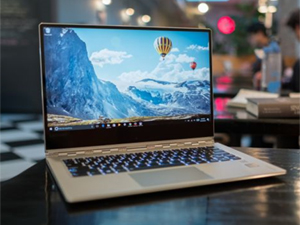



Date:28/11/17
 Do you use a laptop or tablet to take notes during school lectures or meetings? If so, you might want to reconsider pen and paper; there’s increasing evidence that using laptops during lectures decreases learning, which can result in lower grades, reports The New York Times.
Do you use a laptop or tablet to take notes during school lectures or meetings? If so, you might want to reconsider pen and paper; there’s increasing evidence that using laptops during lectures decreases learning, which can result in lower grades, reports The New York Times.
To study this, researchers at Princeton University and the University of California asked a group of students to take notes at a lecture using pen and paper while another group used laptops. The experiment found that the students who used a laptop did not understand the lecture as well as those who wrote their notes out by hand. The researchers hypothesized that this was because students who wrote notes by hand had to process what the lecturer was saying and, in effect, summarize what was being said to keep up with the lecture. Additionally, they found that laptop note takers had a “tendency to transcribe lectures verbatim,” which mean they were less likely to process information into their own words, thus preventing them from truly understanding what was being taught.
Another study by researchers at York University and McMaster University tested students by asking them to look up things on their laptop that were unrelated to their lecture, like cinema session times. Unsurprisingly, the distraction caused them to remember less of the lecture, and those sitting near them were adversely affected too.
Lastly, a study from the United States Military Academy tested students’ achievements in an economics class by comparing student performance based on whether laptops or tablets were restricted, unrestricted, or not permitted at all. The study found that the students who did not have access to a device performed significantly better than those who did.
Writing things by hand is becoming less common as gadgets and speech recognition software continue to replace pen and paper, but it’s long proven that handwriting improves motor skills, memory, and creativity. So even though note taking with a laptop might be faster, you might want to think about how much information you’re retaining.
Evidence mounts that laptops are terrible for students at lectures
 Do you use a laptop or tablet to take notes during school lectures or meetings? If so, you might want to reconsider pen and paper; there’s increasing evidence that using laptops during lectures decreases learning, which can result in lower grades, reports The New York Times.
Do you use a laptop or tablet to take notes during school lectures or meetings? If so, you might want to reconsider pen and paper; there’s increasing evidence that using laptops during lectures decreases learning, which can result in lower grades, reports The New York Times.To study this, researchers at Princeton University and the University of California asked a group of students to take notes at a lecture using pen and paper while another group used laptops. The experiment found that the students who used a laptop did not understand the lecture as well as those who wrote their notes out by hand. The researchers hypothesized that this was because students who wrote notes by hand had to process what the lecturer was saying and, in effect, summarize what was being said to keep up with the lecture. Additionally, they found that laptop note takers had a “tendency to transcribe lectures verbatim,” which mean they were less likely to process information into their own words, thus preventing them from truly understanding what was being taught.
Another study by researchers at York University and McMaster University tested students by asking them to look up things on their laptop that were unrelated to their lecture, like cinema session times. Unsurprisingly, the distraction caused them to remember less of the lecture, and those sitting near them were adversely affected too.
Lastly, a study from the United States Military Academy tested students’ achievements in an economics class by comparing student performance based on whether laptops or tablets were restricted, unrestricted, or not permitted at all. The study found that the students who did not have access to a device performed significantly better than those who did.
Writing things by hand is becoming less common as gadgets and speech recognition software continue to replace pen and paper, but it’s long proven that handwriting improves motor skills, memory, and creativity. So even though note taking with a laptop might be faster, you might want to think about how much information you’re retaining.
Views: 347
©ictnews.az. All rights reserved.Similar news
- Azerbaijani project to monitor disease via mobile phones
- Innovative educational system to be improved under presidential decree
- NTRC prolongs license of two TV and radio organizations for 6 years
- Azerbaijan establishes e-registry for medicines
- Azerbaijani museum introduces e-guide
- Nar Mobile opens “Nar Dunyasi” sales and service center in Siyazan city
- International conference on custom electronic services held in Baku
- OIC secretary general to attend COMSTECH meeting in Baku
- Azerbaijan develops earthquake warning system
- New law to regulate transition to digital broadcasting in Azerbaijan
- Azerbaijani State Social Protection Fund introduces electronic digital signature
- Intellectual traffic management system in Baku to be commissioned in December
- Tax Ministry of Azerbaijan started receiving video-addresses
- World Bank recommends Azerbaijan to speed up e-service introduction in real estate
- Azerbaijan to shift to electronic registration of real estate





















